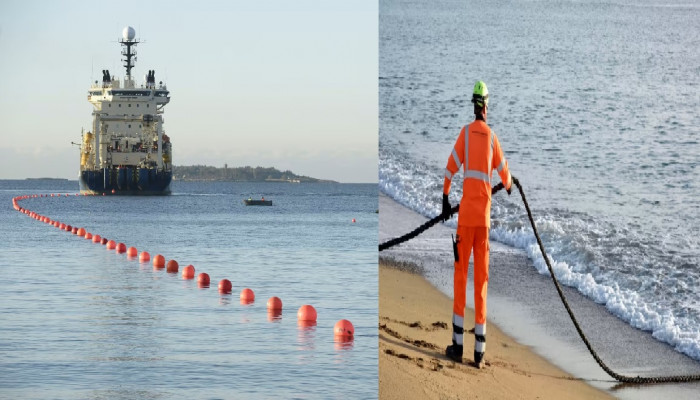Investigators probe Chinese ship’s role in severed Baltic Sea data cables
- In Reports
- 01:35 PM, Nov 20, 2024
- Myind Staff
Authorities in Europe are investigating the movements of a Chinese-registered bulk carrier, Yi Peng 3, in connection with the severing of two critical undersea data cables in the Baltic Sea. This is the second such investigation in recent months amid growing concerns over potential acts of sabotage.
The Yi Peng 3, on the route from the Russian port of Ust-Luga to Port Said in Egypt, passed near both the Swedish-Lithuanian and Finnish-German cables around the time they were severed on Sunday and Monday, according to data from Marine Traffic, a maritime tracking service. The Danish Navy closely monitored the ship following the incidents, according to open-source intelligence experts.
Swedish authorities have launched an investigation into both incidents, focusing on the role of the Yi Peng 3. Sources familiar with the probe noted that “the Swedes are taking a hard look at the Chinese vessel.” While the Swedish government declined to comment on the vessel’s involvement, an official confirmed that police, the coast guard, and armed forces were collaborating on the investigation.
Germany’s Defence Minister, Boris Pistorius, suggested the incidents were likely deliberate. “No one believes that these cables were cut accidentally,” Pistorius said, describing the events as a form of hybrid warfare. “We have to assume, without knowing it yet, that it is sabotage,” he added.
The severing of the cables comes just over a year after another Chinese vessel, the Newnew Polar Bear, damaged a Baltic gas pipeline between Finland and Estonia. Finnish and Estonian officials have not confirmed whether that incident was accidental or intentional.
Yi Peng 3 is owned by Ningbo Yipeng Shipping, a Chinese company with just one other vessel in its fleet. Attempts to contact the company were unsuccessful, and China’s embassies in Stockholm and Helsinki did not respond to inquiries.
The governments of Germany, Sweden, Finland, and Lithuania issued a joint statement expressing “deep concern” over the incidents, stating the growing threat of hybrid activities in Europe, particularly given the current geopolitical climate with Russia.
Finnish authorities urged caution, advising against premature conclusions. Officials highlighted that China had cooperated with last year’s investigation into the gas pipeline damage.
Lithuania’s Defence Minister Laurynas Kasčiūnas stated that the European Union and its member states should consider utilising new sanctions frameworks for acts of sabotage against critical infrastructure, following the outcome of the investigations.
The incidents have drawn heightened attention as nations assess the risks of hybrid threats and the potential involvement of state or non-state actors in undermining critical European infrastructure.







Comments